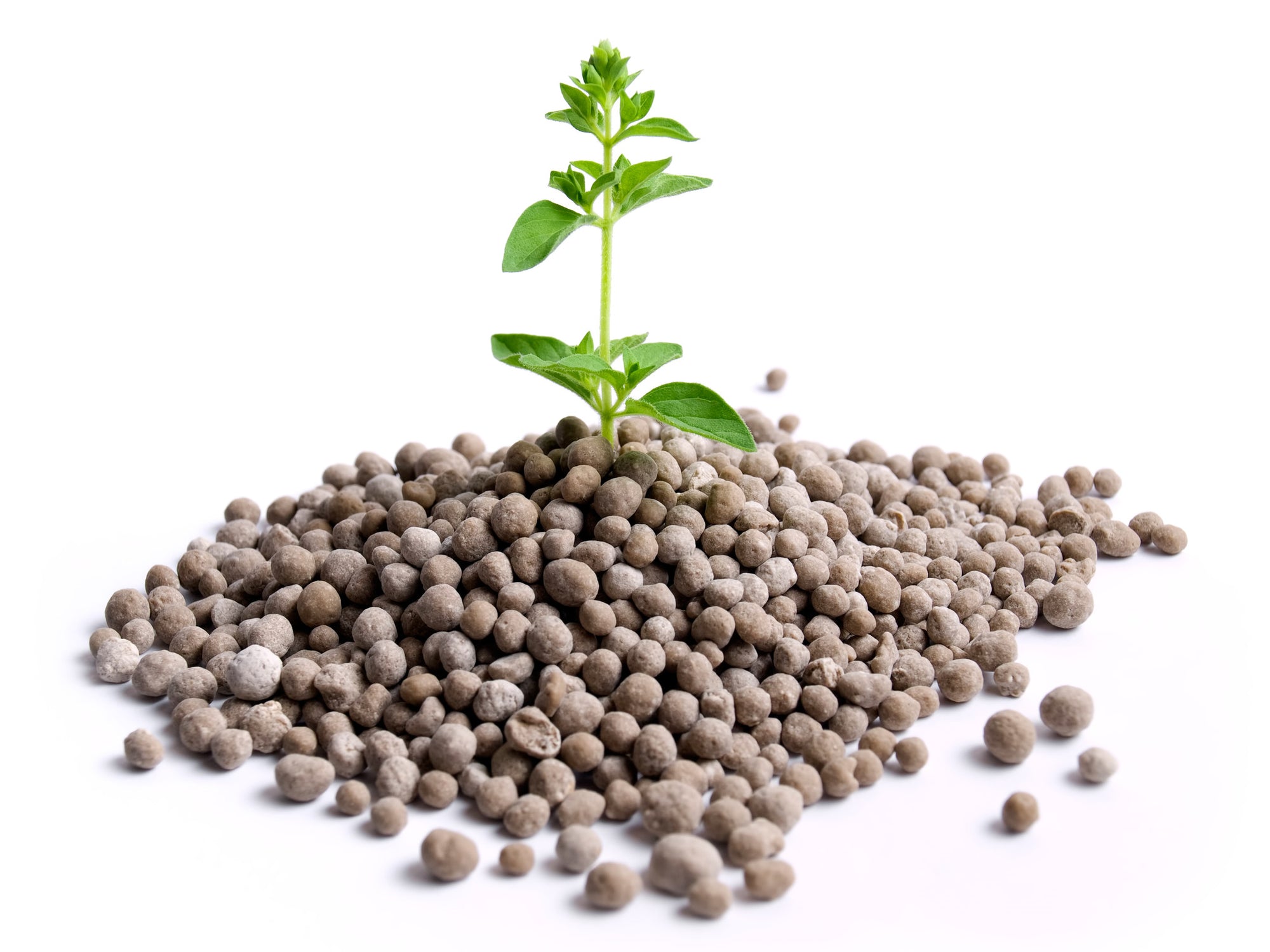What's the Function of Phosphorus (P) in Plants?
•Posted on November 29 2016

Phosphorus (P) is part of the nuclei acid structure of plants which is responsible for the regulation of protein synthesis.
Phosphorus plays a major role in the growth of new tissue and division of cells. Plants perform complex energy transmissions, a function that requires phosphorus.
The value of phosphorus in your garden cannot be stressed enough. One of the benefits of phosphorus in plants is proper development of the roots and hastening of maturity.
Why Do Plants Need Phosphorus?

All living organisms require phosphorus. Plants, in particular, need phosphorus fertilizer for normal development and timely maturity.
They use it for photosynthesis, storage and transfer of energy, respiration among various other functions.
Without enough supply of phosphorus, plants are unable to complete their production cycle as expected.
Phosphorus is a vital component of DNA which contains the genetic data of all living things.
It is also a crucial part of the RNA which reads the genetic code responsible for the building of protein and other compounds required to form the structure of the hydroponics plants.
The structures of both DNA and RNA are linked by phosphorus.
Phosphorus is crucial for the ATP component. ATP is formed during photosynthesis and contains phosphorus as part of its structure.
ATP is present in the plants from growth until maturity as they need it to process nutrition for their development.
What's the Function of Phosphorus in Plants?

Phosphorus is responsible for a number of functions in plants which underlines its importance to the plants in your garden.
The growth of plants is boosted by phosphorous whose lack leads to weak plants that fail to produce as expected.
Plants require capturing the rays of the sun during photosynthesis. The following are the main functions performed by phosphorus in the life of plants:
- Stimulates root development necessary for the plant to get nutrients from the soil. The roots are also necessary for the support of the plant. When the roots are well developed, they are able to penetrate the ground and gather all the nutrients required by the plant for development.
- Boosts the development of the plant. Plants require nutrition for their development. The nutrition is processed in the leaves and then stored or transferred to other parts of the plants. Phosphorus is required for photosynthesis and also in the storage and transportation of the nutrients throughout the plant.
- Plants are expected to produce fruit after a given time if all the circumstances are right. Phosphorous is responsible for crop maturity at the right time. Plants that lack phosphorous take time to mature and when they do, the fruits or seeds they bear are few and poor in quality.
- Legumes help in fixing nitrogen in the soil through their roots. This function cannot be carried out well without phosphorous which boost the development of the roots.
- The substances required for the formation and development of genes cannot perform well without the availability of phosphorous. The transfer of the genes from one generation to the next is only possible when phosphorous is available.
- Plants that have access to enough phosphorous have the ability to resist diseases because all their parts are well developed and grow quickly. Plants grown using hydroponics are supplied with enough phosphorous to ensure they grow well.
What Does Phosphorus Deficiency Cause?

Phosphorous deficiency is not very obvious, but one can tell of its presence if plants fail to grow to their normal size or take too long to mature.
Plants require phosphorus from the early stages of development because it is hard to reverse the effects of the deficiency when signs of stunt growth appear.
Lack of phosphorous is addressed through application of Phosphorus Fertilizer in the soil.
Plants grown using hydroponics may use phosphorous dissolved in water instead of applying in soil. The effect of the phosphorous is the same, irrespective of its application method.
Grow With Greenway!
Shop our phosphorus fertilizers below and watch your plants blossom! Our premium collection of organic fertilizers, speciality fertilizers, water-soluble fertilizers and hydroponic nutrients offers a solution for every need.
Related Posts:
- What's the Function of Potassium in Plants?
- What's the Function of Nitrogen in Plants?
- What's the Function of Calcium in Plants?
Comments
6 Comments
-

Posted by Anthony Kariuki | July 05, 2021
-

Posted by Thomas nichols | April 22, 2021
-

Posted by TAQUI AHMED | September 17, 2020
-

Posted by Sir Paschal James | August 19, 2020
-

Posted by Vishramdas | August 03, 2020
-

Posted by Joel k.bii | May 14, 2020
Leave a CommentIn Kenya.Interested.Phosphorous efficient in coffee.Your contacts please.
Could I have your phone number
sapatoo tree over eight old and 12 feet long does not give flower and fruit request to suggest action
Nice presentation
Explanation is very knowledgibly
Good elaboration